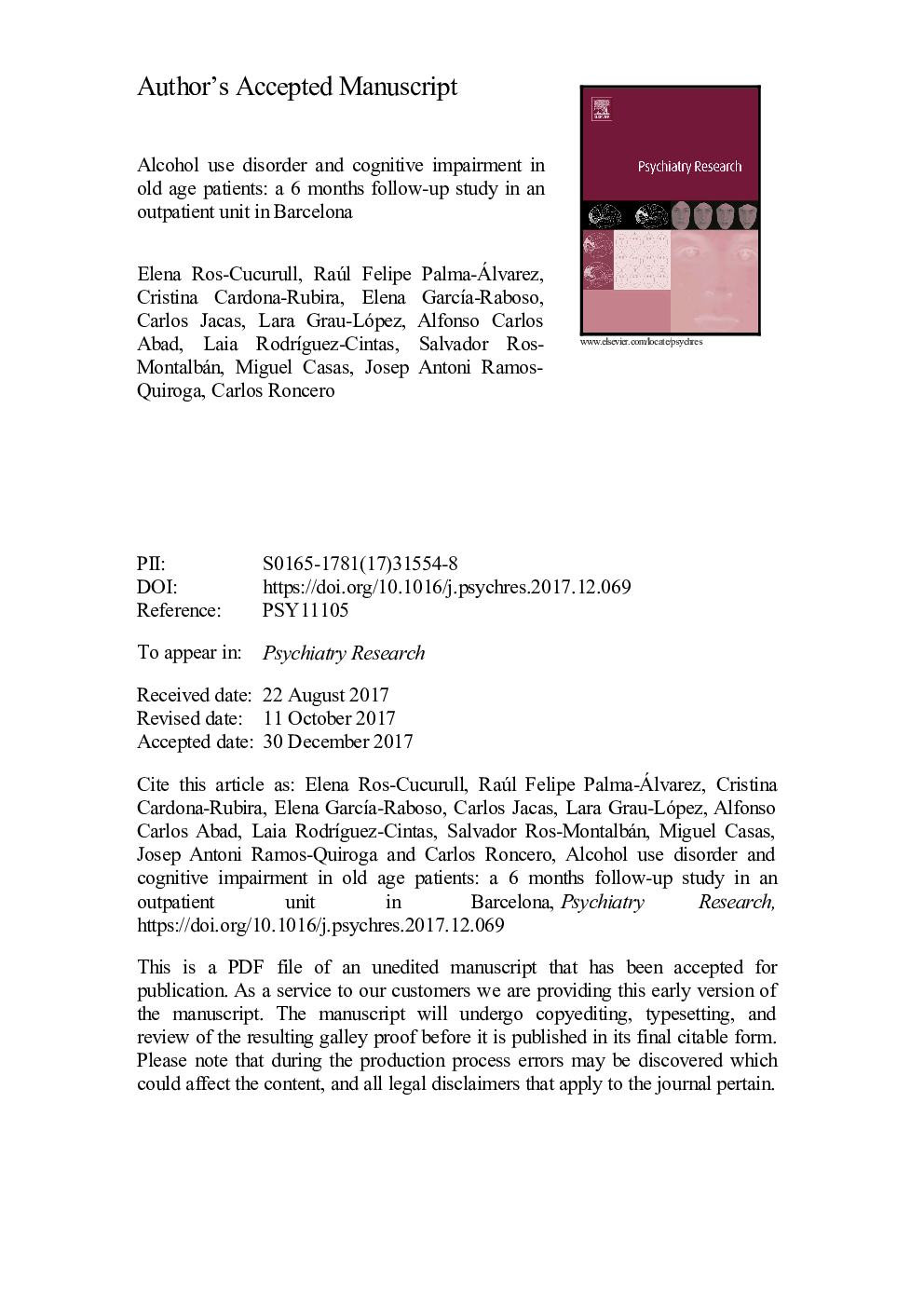| Article ID | Journal | Published Year | Pages | File Type |
|---|---|---|---|---|
| 6811894 | Psychiatry Research | 2018 | 23 Pages |
Abstract
There has been little research about deleterious effects, including cognitive impairment, related to hazardous long-term alcohol use in old adults. This study aims to assess cognitive decline in old patients with alcohol use disorder and changes in cognitive state at 6 months follow-up, achieving or not abstinence. A six-month follow-up study was conducted in an outpatient center in Barcelona on a sample of old adults (â¥65 years old) who had hazardous alcohol use. The sample was compared with healthy volunteers adjusted for age, sex and years of education. A neuropsychological protocol was performed at baseline and after 6 months follow-up covering four cognitive domains: attention, visuospatial abilities, memory and executive functions. Several domains were significant impaired at baseline: visual immediate and delayed recall, working memory, immediate verbal learning, total words learned, set switching and sustained attention. At 6 months reassessment, alcohol abstinence was achieved in 93.5% of patients and it was detected a trend towards improvement in direct mean scores of all cognitive areas, although it was not significant. The current study points out a cognitive impairment in many areas secondary to alcohol long-term hazardous use in old adults. A trend towards cognitive improvement after recovery was detected in most patients.
Related Topics
Life Sciences
Neuroscience
Biological Psychiatry
Authors
Elena Ros-Cucurull, Raúl Felipe Palma-Álvarez, Cristina Cardona-Rubira, Elena GarcÃa-Raboso, Carlos Jacas, Lara Grau-López, Alfonso Carlos Abad, Laia RodrÃguez-Cintas, Salvador Ros-Montalbán, Miguel Casas, Josep Antoni Ramos-Quiroga,
